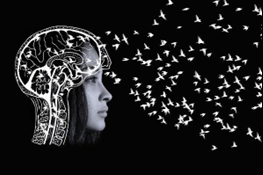|
Why is it so difficult for some to enter into a stage of Interdependence? In this article, we will explore the challenges individuals may face when entering the stage of interdependence and how to overcome them. By understanding these obstacles and embracing the journey towards interdependence, we can create a strong foundation for a truly fulfilling partnership. The Fear of Vulnerability: Interdependence requires vulnerability and openness, which can be daunting for some individuals. Past hurts and a fear of being emotionally exposed may hinder their ability to rely on someone else. To overcome this challenge, it's important to acknowledge and address the fear by gradually building trust with your partner. Start by sharing small vulnerabilities and gradually increase the depth of your emotional connection over time.
Cultivating Effective Communication: Interdependence thrives on open and honest communication. If you struggle with expressing your needs, asserting boundaries, or actively listening, it's crucial to develop these skills. Practice active listening, empathy, and assertiveness. Seek couples therapy or communication workshops to enhance your communication abilities and deepen your understanding of each other's needs and desires. Building Trust and Intimacy: Trust is the cornerstone of interdependence, and past experiences of betrayal or abandonment can make it challenging to trust again. Healing from past wounds and building trust with your partner takes time and effort. Engage in open conversations about your fears, work on building a strong foundation of honesty, and consider seeking the support of a therapist to help navigate trust issues and cultivate intimacy. Letting Go of Control and Autonomy: It’s frequently found that those who have difficulty with interdependence have a strong need for control and autonomy may struggle with embracing interdependence. The fear of losing independence or relying on someone else can be a significant hurdle to overcome. Start by recognizing that interdependence is not about giving up control but about sharing responsibilities and resources with your partner. Gradually relinquish control in certain areas and allow yourself to rely on and be supported by your partner. Breaking Unhealthy Relationship Patterns:
Past experiences in codependent or unhealthy relationships can shape our beliefs about what is normal or expected in a partnership. Breaking free from these patterns is crucial for embracing interdependence. Seek self-reflection and professional support to identify and change negative relationship patterns. Learn healthier ways of relating to others, setting boundaries, and nurturing a balanced and mutually supportive partnership. ______________________________________________ Embracing interdependence in a relationship is a transformative journey that requires self-awareness, patience, and courage. By acknowledging and addressing the challenges of vulnerability, independence, communication, trust, control, and past relationship patterns, we can pave the way for a truly fulfilling and balanced partnership. Remember, interdependence is a process, and with each step, you and your partner can create a foundation of love, connection, and mutual support that will bring joy and fulfillment to your lives.
0 Comments
Your comment will be posted after it is approved.
Leave a Reply. |
Archives
April 2024
Topics & Authors
All
AuthorSteve Jobson |
At inSync for life, we acknowledge the Traditional Custodians of the land on which we work and live.
We recognise their continuing connection to land, water and community, and we pay respect to Elders past, present and emerging
We recognise their continuing connection to land, water and community, and we pay respect to Elders past, present and emerging
Copyright © inSync for life 2024




 RSS Feed
RSS Feed